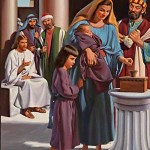Is financial freedom really all it’s cracked up to be?
We hear a lot about it in both secular and religious circles. We go to conferences and watch entire channels that seem devoted to helping us achieve it — in between commercials. We’re told that we should all be pursuing it. But what is financial freedom?
And if we’re thinking biblically, should we want it?
I’ve known many Christians who took extreme measures to achieve what they perceived to be financial freedom. They worked multiple jobs to pay down loans faster, doubled up their mortgage payments, and skipped family vacations to reach that fabled plateau.
But when they got there, they seemed to not know what to do next. They no longer owed anyone anything – or so they thought – but they soon began to collect various toys, houses, and stuff.
They had, after all, earned the right to do it. To them, financial freedom meant they could now do pretty much whatever they wanted to do with their money.
ReThinking Financial Freedom in the West
I suspect that financial freedom has the same meaning for many Christians in Western culture. For many of us, financial freedom means simply getting out of debt, living debt-free, or being able to do what we want to do without concern for money.
After all, the commercials with an aging Tommy Lee Jones or Fred Thompson seem to stress how important it is that we be free to live out our retirement years in whatever way we darn well please. It seems the good life is not having to worry about money anymore.
But is that financial freedom or an American corruption of true freedom?
Toward a Biblical Understanding of Freedom
The Biblical understanding of freedom is that we have been freed from something – the bondage of sin. But that’s not all there is to it. Biblical freedom is two-fold:
But you are a chosen race, a royal priesthood, a holy nation, a people for his own possession, that you may proclaim the excellencies of him who called you out of darkness into his marvelous light. (1 Peter 2:9)
We have been called out of the darkness to be sure, but we have also been called into the marvelous light of His Kingdom. We’ve been both freed from sin and freed to new life in Christ. Hence Paul repeatedly refers to himself as having been freed in order to serve as a bondservant of Christ.
I confess that kind of “free to serve” talk jars my western sensibilities somewhat. For many of us, freedom means the ability to do what I want, not the responsibility to do what I should. But the purpose of freedom is not the selfish pursuit of whatever catches my fancy. We have been freed so that we can truly love God and our neighbors as ourselves.
Freedom is not the permission to do what we like but the power to do what we should. ~ Os Guinness
So What about Financial Freedom?
Maybe it’s time we adjusted our definition of financial freedom. Getting out of debt is not bad thing. After all, “the borrower is servant to the lender.” Not being in debt certainly gives us more options.
But if our goal is to shake free of financial debt so we can spend more on our own desires then we have fallen short of the glory of God. And that ain’t good.
The Bible doesn’t talk much about financial freedom, but it does talk about freedom from lust, freedom from covetousness, and freedom from placing our security in our wealth.
And it doesn’t stop there. It also talks about freedom to be generous, freedom to give freely to the needy, and freedom to trust in God to provide our every need as we walk by faith in obedience to Him.
Maybe that’s a better definition of financial freedom: a heart that can live generously in faithful service to the One who loved us and gave Himself for us because it is no longer enslaved by the love of money.
Maybe that’s what financial freedom really is – or should be.
What do you think? Leave a comment below with your thoughts.













